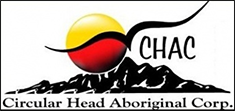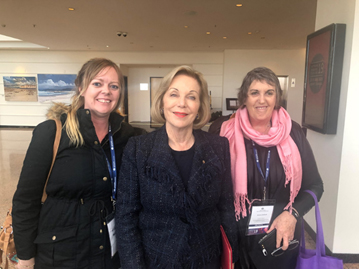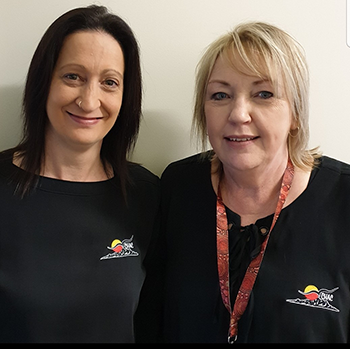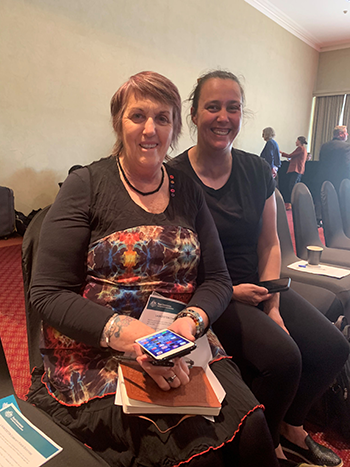
Associate Professor Lyn Goldberg, Wicking Dementia Research and Education Centre
In 2016, I was fortunate to meet Dr Terry Cox (an Aboriginal faculty member in the Centre for Rural Health) who grew up in the Circular Head community in North West Tasmania. Terry introduced me to Dianne Baldock, then Chief Executive Officer of the Circular Head Aboriginal Corporation (CHAC) and now Chair of the CHAC Board. Di had heard increasing concerns from community members about changes in the social engagement and behaviour of older people in the community. These reported changes were not initially associated with dementia. However, as Di described them, we realised that they may indeed be dementia-related, and this was important to investigate. With the approval of the CHAC Board, our first step was to arrange opportunities for community members to get together and yarn – talk about life, changes - expected and unexpected - and what such changes might mean. With the approval of the CHAC Board, we asked older members of the community to complete the Dementia Knowledge and Assessment Scale (DKAS), developed by staff at the Wicking Centre1. Board members had reviewed the DKAS and determined that it was appropriate to ask community members to complete. Subsequently, 50 people completed the DKAS at a community meeting, providing valuable insights into their understanding of, and thoughts about dementia2,3.

Two important needs were immediately evident: having (1) community members knowledgeable about dementia who can educate others, and (2) qualified Aboriginal Primary Health Care Workers on country. We began to get busy writing grants. In 2017, we were fortunate to receive substantial Dementia and Aged Care Services (DACS) funding from the Department of Health. This 2-year funding has supported eight students (aged 20-46 years) to complete a TasTAFE Certificate III in Individual Support (Ageing, Home, and Community) while studying in the Wicking Centre’s online Bachelor of Dementia Care. The TasTAFE Certificate was offered face-to-face with students’ gaining valuable practical experience within the Aboriginal community. Thus, the students have been able to complete a vocational qualification while enrolled in University studies. This innovative coupling of Certificate and University programs is recommended in the University’s Strategic Plan of Aboriginal Engagement. With national recognition of this innovative program, the students were invited to speak about their experiences at the Australian Dementia Forum, held in Hobart, in June 2019.
The success of the DACS project led to additional philanthropic funding from Equity Trustees (Victoria) to support two CHAC staff in obtaining a Certificate IV in Aboriginal and/or Torres Strait Islander Primary Health Care (Practice). With her invaluable connections, Di secured matching funding from the Department of Prime Minister and Cabinet – Indigenous Affairs. This enabled staff from other Aboriginal corporations in Tasmania to participate in the Certificate IV program.

I was invited to speak about my work at the Sydney meeting of the Royal Commission on Aged Care Quality and Safety and highlighted the community-led initiatives underway at CHAC. Subsequently Di and Camilla Woolley, a CHAC staff member, participated in the Commission’s Community Forum in Launceston.
In an ongoing initiative, over the past two years Di and the students have promoted the community’s understanding of evidence-based modifiable risk factors that may prevent or delay the onset of dementia. The Wicking Centre has developed a 4-week Preventing Dementia Massive Open Online Course, the PD MOOC, focused on these risk factors. Di encouraged weekly communal meetings at the CHAC office where community members could watch each PD MOOC module, chat about the content, and work together to infuse risk reduction strategies into strengths-based and traditional approaches to care to support individual and community health. This innovative approach resulted in Di’s invitation to speak at the Lowitja Institute International Indigenous Health and Wellbeing conference, held in Darwin last June.

A further CHAC initiative, facilitated by Di, is community members’ input into the Aboriginal and Torres Strait Islander Roadmap for Dementia Research and Translation, funded by the National Health and Medical Research Council (NHMRC). This Research Roadmap will be released soon. It is exciting to see both CHAC and the Wicking Centre listed as contributors to this important national initiative focused on health literacy; prevention, risk reduction and diagnosis; access to services and supports; culturally informed services and workforce; and end of life care for Aboriginal and Torres Strait Islander peoples.
References
1. Annear MJ, Toye CM, Elliot KJ, et al. Dementia Knowledge Assessment Scale (DKAS): Confirmatory factor analysis and comparative subscale scores among an international cohort. BMC Geriatrics. 2017; 17:168.
2. Goldberg LR, Cox T, Hoang H, & Baldock D. Addressing dementia with Indigenous peoples: a contributing initiative from the Circular Head Aboriginal community. Australian and New Zealand Journal of Public Health. 2018; 42(5): 424-426.
3. Cox T, Hoang H, Goldberg LR, & Baldock D. Aboriginal community understandings of dementia and responses to dementia care. Public Health. 2019; 172: 15-21.
Sincere thanks to all colleagues: Andrea Price (Wicking Centre); Terry Cox, Ha Hoang and Merylin Cross (Centre for Rural Health) and Dianne Baldock, without whom these initiatives would not have been possible, and everyone at CHAC.
